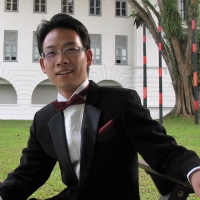China and Singapore are Distant Relatives at Best
Singapore’s mixed reactions towards China are historically consistent, even if they disappoint some there.
December 20, 2015
This year marks the 25th Anniversary of Diplomatic Relations between China and Singapore. The latter was actually the last country in Southeast Asia to officially formalize diplomatic relations with the People’s Republic of China.
Singapore has been an independent city-state since 1965. The majority population of Chinese descent from southern China makes its relations with China inevitably “unique” – like a family member, but a distant one, both geographically and geopolitically.
Nowadays, China considers Singapore as “an important partner and a special friend,” while Singapore describes the bilateral ties as “broad, deep and multi-faceted.” However, the reality is more complex.
On December 7, 2015, Singapore signed an enhanced defense cooperation agreement with the United States.
For the first time, Singapore agreed to host the deployment of U.S. Poseidon spy planes amid the ongoing South China Sea disputes, incurring criticism from China.
The month before, China was very appreciative of Singapore for hosting the historic meeting between Chinese President Xi Jinping and his Taiwanese counterpart Ma Ying-jeou. It was another milestone in cross-Strait relations after the Wang–Koo summit in 1993, which was held in Singapore, too.
Balancing act
Singapore’s mixed reactions towards China may confuse and disappoint some Chinese people, but they are historically consistent.
Indeed, back in November 1990, Singapore signed the Memorandum of Understanding for the United States’ Use of Facilities in Singapore, just one month after establishing diplomatic relations with mainland China. Singapore seems always simultaneously and strategically to balance its relations with China and the United States.
Indeed, Singapore’s foreign policies have been following its founding father Lee Kuan Yew’s philosophy of “the balance of power.” This can be simply summarized as economically pro-China but militarily pro-United States. It remains politically independent and culturally diverse.
On one hand, China is currently Singapore’s top trading partner, while Singapore is China’s largest foreign investor.
On the other hand, Singapore has been a strong supporter of the U.S. military presence in the Asia-Pacific region, allowing the United States access to its military facilities.
Differing perspectives
As the “Little Red Dot,” Singapore cannot intend to offend China, but it is sometimes unavoidable, especially when the two countries’ national interests conflict.
From Singapore’s perspective, it faces a “Chinese dilemma.” Singapore welcomes China’s rise, which brings huge business opportunities. But it also believes the U.S. presence in Asia-Pacific as a balance of rising China is essential for regional stability.
From China’s perspective, it faces a “Singapore trick.” China has been willing to give business priorities to Singapore as an overseas relative, but it is disappointed with Singapore’s military alliance with the United States, which may contain “the great rejuvenation of the Chinese nation.”
Such different perspectives were managed relatively well in the past, when China’s power was relatively weak and conservative, and when Lee Kuan Yew wisely maintained good personal friendships with most of China’s then-leaders.
However, China now has been for some time the largest or second largest economy and its foreign policies are becoming more aggressive, while Lee Kuan Yew has passed away.
Therefore, it is questionable whether Singapore without Lee Kuan Yew can continue to enjoy its enviable role as an honest broker by declining to choose sides. This is especially unlikely, given the escalating Sino-U.S. strategic competition in Southeast Asia.
A new view
Singapore will have to find the solution by itself anyway. But how should China respond?
China would be better off if it viewed Singapore more rationally and objectively rather than as some prodigal son refusing to come home. This principle extends far beyond the simple point that Singapore is an independent country.
First, although Singaporean society is dominated by Chinese descent, one quarter of the population is non-Chinese. Singapore is thus not simply some kind of overseas Chinese territory.
Second, the Chinese in Singapore see themselves as hua ren (ethnically and culturally part of the global Chinese community), but not zhongguo ren (mainland Chinese).
Last, Singaporean Chinese, especially the young generation, are feeling increasingly more detached from mainland China. Some even express xenophobic sentiments toward non-Singaporeans.
Moreover, the Chinese in Hong Kong and Taiwan actually have closer kinship with mainland Chinese than Singaporean Chinese, but many of them tend to have a reluctant sense of personal identification with the mainland Chinese. Why should mainland China expect more from the Singaporean Chinese?
Therefore, if China still wishfully thinks of Singapore as a relative, it is at best a distant relative, which has its own interests and agenda. With the diminishing kinship, Singapore will never be willing to get too close to China. But it likely will never drift too far away either.
Takeaways
Singapore always simultaneously and strategically balances relations with China and the US.
Singapore’s mixed feelings on China are historically consistent, even if they disappoint some there.
With an ascendant China and with the passing of Lee Kuan Yew, can Singapore keep its neutrality?
With diminishing kinship, Singapore will never get too close to China. But it won’t drift away either.
